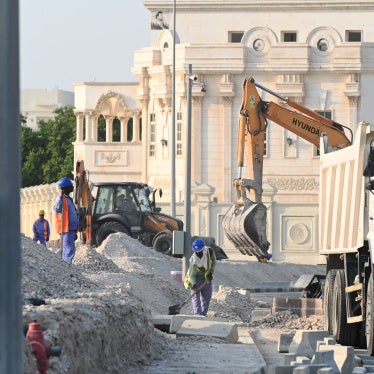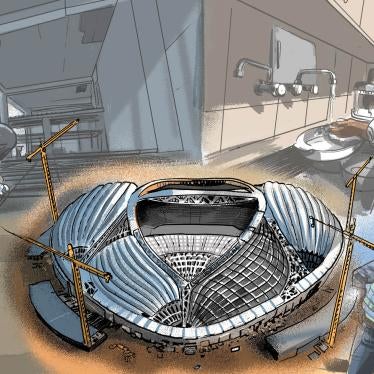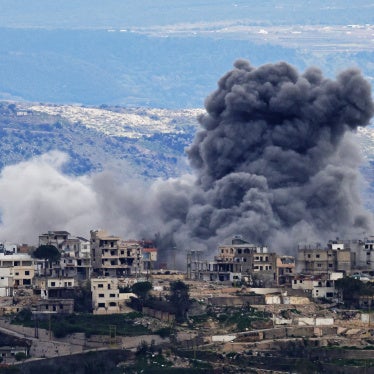Sepp Blatter, the president of FIFA, football’s governing body, is off to Qatar on Saturday to talk to the emir about migrant workers’ rights, the issue that has dogged the decision to hold football’s signature event – the World Cup – in the Arab state in 2022.
“It’s like a bell that goes ding dong” he said, explaining the need to hear the emir’s side of the story. “You have only one end [and] we have to look at the other side.”
Of course Blatter should meet with the emir. And he should make sure to present him the incontrovertible evidence from multiple credible sources of serious human rights abuses in Qatar’s construction sector, including the evidence that Human Rights Watch presented to FIFA representatives when we met them in Zurich a year ago. We told them then how the problems could be resolved, and how FIFA could play its part.
In response, FIFA officials said they were not legally responsible for the construction of stadiums and associated infrastructure.
If Blatter is now serious about migrants’ rights he can’t just repeat vague assurances that the problem is under control. We need specifics and we need a timeline for reform.
And if he wants a first-hand account of the treatment of foreign workers in Qatar, he should also visit the French professional football player Zahir Belounis, whom Qatari officials have trapped in the country for almost two years on account of its inexcusable exit visa system. Belounis, his wife, and two young daughters are sleeping on the floor of their apartment, having sold all their furniture after officials promised them, yet again, that they would be allowed to return to France.
Belounis may not be an expert on the construction sector but he can tell Blatter much of what he needs to know, including the worth of private assurances in Qatar.






